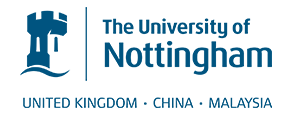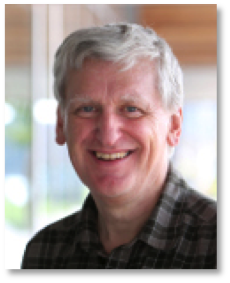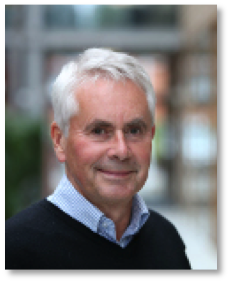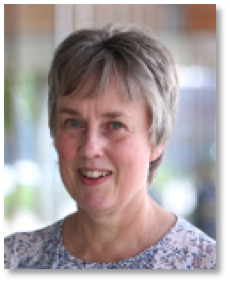The University of Nottingham
 The University of Nottingham is a research-led university that is consistently ranked among the top 10 UK Universities with the School of Education being one of the largest and most well established education departments in the UK (recently ranked 8th for research in the UK).
The University of Nottingham is a research-led university that is consistently ranked among the top 10 UK Universities with the School of Education being one of the largest and most well established education departments in the UK (recently ranked 8th for research in the UK).
The Centre for Research in Mathematics Education (CRME) is one of six Centres in the School and is one of the largest such groups in the UK. The Centre caters for a wide range of teaching and supervision of higher degrees with research being focused in the interrelated areas of policy and equity, curriculum and pedagogy, continuing professional development and pedagogies. As part of CRME the MARS/Shell Centre, founded in 1968, is a professional design research and development group with team members having extensive experience of designing teaching, learning, assessment materials and professional development for teachers of mathematics and science both in the UK and internationally, particularly in the United States. The Centre team have wide experience of working on Formative Assessment, and are currently working with the University of California (Berkeley) on the Mathematics Assessment Project, which is aimed at producing formative assessment lessons to support the Common Core Curriculum Standards for Mathematics across the US. This is funded by the Bill and Melinda Gates Foundation.
Members of the Centre have worked on several EU projects, including: LEMA (Learning and Education in and through Modelling and Applications – a Comenius project), PRIMAS (Promoting Inquirybased Learning in Mathematics and Science – FP7); MASCIL (both FP7 projects).
 Professor Malcolm Swan, started his career as a Mathematics teacher and has now worked at the University of Nottingham for 30 years and and has, until his recent retirement, been Head of the Mathematics Education Research Centre. He is acknowledged worldwide as an expert in designing classroom materials and materials for teacher professional development. All his materials are theoretically informed and have been evaluated and have proven efficiency and efficacy. The outputs of his research into professional development have been supported by the UK government’s Education Department and distributed to all secondary schools (for 11-18 year old students), Further Education colleges (for post-16 students) and Adult Education providers in UK through the National Centre for Excellence in Teaching Mathematics. His work offers “highly successful approaches to teaching, learning and professional development” (OfSTED, 2006). Recently he was responsible for developing a multimedia (and online) resource for promoting inquiry-based pedagogies among Mathematics Teachers that is widely used in Secondary Schools. Professor Swan leads a team of educational designers who are currently working extensively on the development of teaching materials for use in the United States that focus on inquiry approaches and formative assessment.
Professor Malcolm Swan, started his career as a Mathematics teacher and has now worked at the University of Nottingham for 30 years and and has, until his recent retirement, been Head of the Mathematics Education Research Centre. He is acknowledged worldwide as an expert in designing classroom materials and materials for teacher professional development. All his materials are theoretically informed and have been evaluated and have proven efficiency and efficacy. The outputs of his research into professional development have been supported by the UK government’s Education Department and distributed to all secondary schools (for 11-18 year old students), Further Education colleges (for post-16 students) and Adult Education providers in UK through the National Centre for Excellence in Teaching Mathematics. His work offers “highly successful approaches to teaching, learning and professional development” (OfSTED, 2006). Recently he was responsible for developing a multimedia (and online) resource for promoting inquiry-based pedagogies among Mathematics Teachers that is widely used in Secondary Schools. Professor Swan leads a team of educational designers who are currently working extensively on the development of teaching materials for use in the United States that focus on inquiry approaches and formative assessment.
 Professor Geoff Wake recently joined the Centre following a successful twenty-year period at the University of Manchester, where he led teacher education in secondary mathematics and worked on a wide range of mathematics education research and development projects primarily in applications of mathematics in the postcompulsory sector. He has an exceptionally strong track record of research that has explored applications of mathematics at all levels with much of this stimulated by an interest in applications of mathematics in vocational learning and workplaces. Parallel research that explored activity in workplaces and assessment of mathematics for vocational students led to a significant amount of work in curriculum development and the design of new ‘applications of’ mathematics qualifications at a national level that have been thoroughly evaluated to show increased dispositions towards further study of S & T subjects.
Professor Geoff Wake recently joined the Centre following a successful twenty-year period at the University of Manchester, where he led teacher education in secondary mathematics and worked on a wide range of mathematics education research and development projects primarily in applications of mathematics in the postcompulsory sector. He has an exceptionally strong track record of research that has explored applications of mathematics at all levels with much of this stimulated by an interest in applications of mathematics in vocational learning and workplaces. Parallel research that explored activity in workplaces and assessment of mathematics for vocational students led to a significant amount of work in curriculum development and the design of new ‘applications of’ mathematics qualifications at a national level that have been thoroughly evaluated to show increased dispositions towards further study of S & T subjects.
 Diane joined the Centre for Research in Mathematics Education in September 2014 after three years as a full-time doctoral student in the School of Education, having spent much of her life in Further Education colleges as a mathematics teacher and later as a senior manager. Although Diane’s career commenced in secondary schools, the progression into Further Education broadened her view of post-16 provision and provided valuable experience across the academic, vocational and adult strands of post-compulsory education. Diane’s main research interests stem from her background in Further Education as a mathematics teacher and manager. These include the teaching of disaffected and low-attaining students, the enactment of policy in FE and the post-16 mathematics curriculum. Her doctoral research focused on the experiences of vocational students learning functional mathematics in Further Education colleges and how different factors arising from policy, curriculum and classroom practice affected their attitudes and understanding. Diane has worked number of projects including the evaluation of the GCSE linked pairs, a (RCT) project for adult learners at Entry level and the Mascil project.
Diane joined the Centre for Research in Mathematics Education in September 2014 after three years as a full-time doctoral student in the School of Education, having spent much of her life in Further Education colleges as a mathematics teacher and later as a senior manager. Although Diane’s career commenced in secondary schools, the progression into Further Education broadened her view of post-16 provision and provided valuable experience across the academic, vocational and adult strands of post-compulsory education. Diane’s main research interests stem from her background in Further Education as a mathematics teacher and manager. These include the teaching of disaffected and low-attaining students, the enactment of policy in FE and the post-16 mathematics curriculum. Her doctoral research focused on the experiences of vocational students learning functional mathematics in Further Education colleges and how different factors arising from policy, curriculum and classroom practice affected their attitudes and understanding. Diane has worked number of projects including the evaluation of the GCSE linked pairs, a (RCT) project for adult learners at Entry level and the Mascil project.
